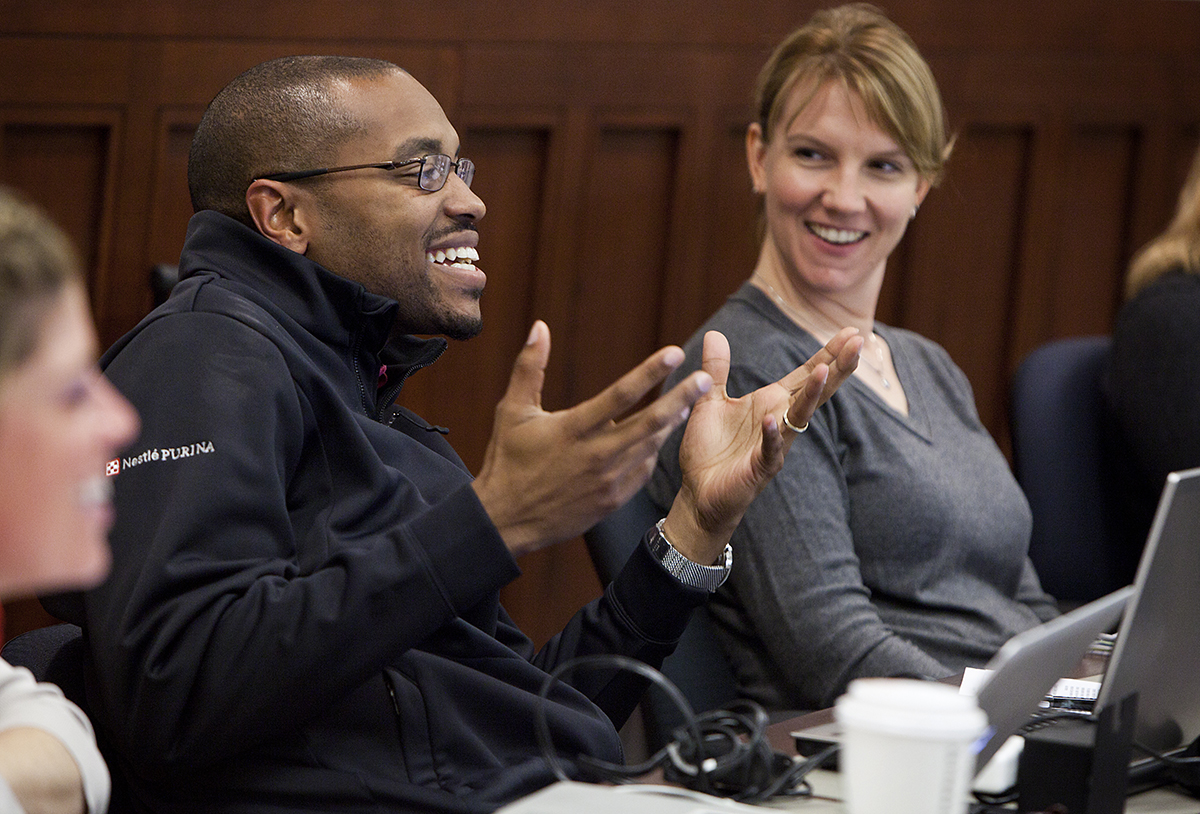EMBA sponsorship: How to open a dialogue
- August 29, 2017
- By Kurt Greenbaum
- 3 minute read

The consideration of an Executive MBA is significant for both a prospective student and their organization alike.
When is the right time? What is the benefit to the executive student? What is the benefit to the organization?
When you ask prospective Executive MBA students about their biggest hurdles to applying, the answers are often “time and money.”
- The Executive MBA tuition is an investment—an investment in yourself and your future.
- The 20-month program includes about 50 days away from the office; including one Thursday and Friday per month and four residencies, two at WashU’s St. Louis campus, one in Washington, DC in partnership with The Brookings Institute, and one in China (Beijing and Shanghai).
Clearly, the student’s employer needs to be on board with the value proposition and the commitment required of the Executive MBA. How can this be a win-win?
Olin can suggest several strategies for starting the conversation with your employer. One of them even includes giving the boss a sampling of b-school—and a taste of how it can benefit both you and your company.
Demonstrate immediate added value to your company
You’ll need one Thursday and Friday off each month for class. Commit to returning to work the following Monday morning ready to share what you’ve learned with colleagues, team members, and the leadership team. Highlight the skills, tools, and ideas you’ll apply immediately to the job you already have. Finally, note the resources Olin can make available to your company because you’re a student: groundbreaking management research, professors who emphasize real-world application of business knowledge, and consulting resources that can tackle specific business challenges your company faces right now.
Remain an engaged leader—in the boardroom and the classroom
Unlike a full-time MBA program, students in the Executive MBA Program are still on the job and simultaneously engaged in both the MBA curriculum and work. Additionally, the cohort-based program encourages learning from classmates—often leaders in other companies or industries—who may face the same challenges and offer innovative solutions.
Align your EMBA to corporate values
Every good company has a vision, a mission, and a set of core strategic values. What are your company’s values? How will supporting your education tie into those values? Does your company value continuous improvement? Professional growth? Stewardship of its assets? A passion to achieve? Companies and students alike can advance real-world values by preparing leaders for business without blind spots. An Olin EMBA develops leaders who can bring analytical thinking to business problems, builds interpersonal skills that can foster collaboration and creativity, and can create bench strength to a company’s leadership team.
Know your tuition reimbursement policies
The truth is, corporate financial support for Executive MBA students has fallen nationwide over nearly 30 years. Some companies are reluctant to risk funding an MBA for an employee who could leave soon after graduation. Many companies also offer partial or full sponsorship policies for a contractual commitment. If you’re willing to commit to staying with your company after earning your degree, you may improve your shot at financial sponsorship.
Bring your boss to school
Olin is sponsoring a special EMBA preview day on Sept. 8, from 11 a.m. to 3 p.m. You’re encouraged to bring your boss (or your sponsor, partner, spouse, or colleague) to get a taste of the program, attend an EMBA class, and lunch with current students who can share how they balance the rigors of school with their professional responsibilities.
Guest blogger: Kurt Greenbaum
Media inquiries
For assistance with media inquiries and to find faculty experts, please contact Washington University Marketing & Communications.
Monday–Friday, 8:30 to 5 p.m.
Sara Savat
Senior News Director, Business and Social Sciences
